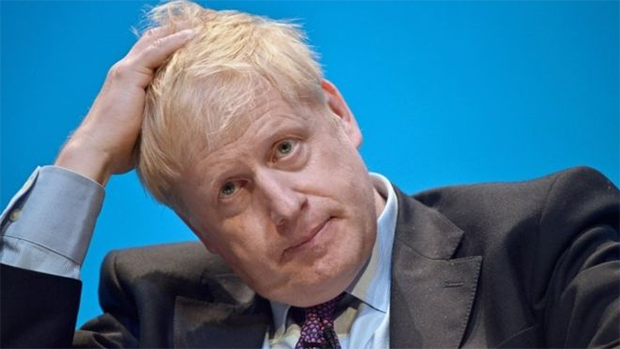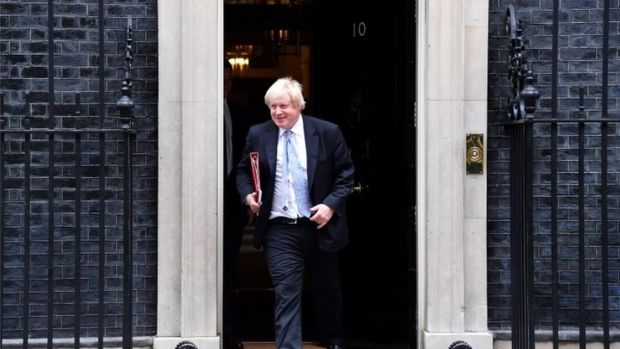During a recent televised debate over the election of a new Conservative leader, British Foreign Secretary Boris Johnson referred to his Muslim ancestors. Some people think this is just a political statement or gossip, but it raises many questions. |
 |
It was also shocking because some time ago Boris Johnson had created a controversy by likening Muslim women in burqas to letterboxes and bank robbers. The fact is that a few generations ago, Boris Johnson's family was not only Muslim, but his great-grandfather was one of the most important figures of the last Ottoman Empire. Boris Johnson's great-grandfather was Ali Kamal, a journalist and liberal politician, according to the well-known Turkish newspaper Hurriyat. Ali Kamal's father's name was Ahmed Affandi and he was a businessman by profession. He was born in 1867 in what was then Constantinople and what is now Istanbul. His mother, Hanifa Farida, was of Serbian descent and was the second wife of Ahmed Affandi. Ali Kamal received his primary education in Istanbul but traveled abroad for higher education. He lived in Geneva and Paris, where he completed his degree in political science. While living abroad, Ali Kamal married a Swiss-English woman, Winnie Fred Brown, in 1903. From this marriage they had two children. The eldest daughter was named Salma while her son was named Usman Ali. Immediately after Usman Ali's birth, Ali Kamal's wife died and the two children were sent to his nanny who was then living in the UK. Both children were raised by their grandmother, Margaret Brown. |
 |
Name change In their childhood, both children changed their names so that they could make their place in the British society of that time. Usman Ali later became known as Wolfred Usman Johnson. As a young man, Wolfred married Erin Willis, a French woman, who bore him three children: Boris' father, Stanley Johnson, uncle Peter Johnson, and aunt Hillary, whose family later moved to Australia. Ali Kamal's family was not limited to Salma and Usman Ali because Ali Kamal later married Sabiha Khanum, a Turkish woman who was the daughter of Nawab Zaki Pasha of the Ottoman court. The marriage gave birth to a son in 1914 named Zaki Kunralp. Ali Kamal's tragic end Ali Kamal not only went abroad to study, but on several occasions he had to go into exile because of his liberal political views, during which time he lived in Britain and Syria. When the British occupied Constantinople after World War II, Ali Kamal sided with the occupying forces. Four years after the occupation, when a parasitic government was formed in the country, Ali Kamal was its interior minister. But this government did not last long and ended three months later. |
 |
Due to the support of the occupying forces, there was a great deal of resentment against them, especially among those who suffered casualties and financial losses in the war of independence fought under the leadership of Mustafa Kemal Pasha. Was Ali Kamal was abducted on November 4, 1922, while he was at a barber shop in Istanbul. Nuruddin Pasha, who kidnapped them, lost two sons in the war of independence. Ali Kamal was being taken to another city by a train when the rioters took him off the train at a station and beat him to death. Of the descendants of the current Muslim relative Ali Kamal, Usman Ali's lineage not only changed his name but also converted to Christianity, while the children of his second-born son Zaki are still followers of Islam. Zaki Kunralp returned home after the death of Kamal Atat ترکrk and, with the special permission of the then President, joined the Turkish Foreign Office and served as Turkish Ambassador to London on two occasions. One of his sons, Sanaan, works as a broadcaster in Istanbul, while the other, Saleem, is a diplomat like his father. But the irony of history is that due to Sanaan and Saleem not having children, Ahmed Affandi's lineage will surpass that of the Johnson tribe in Britain and Hillary's descendants in Australia, with Boris Johnson being the only sign of Turkish descent. Sister Rachel Johnson's middle name is Sabiha which was given to her after her great-grandmother. |